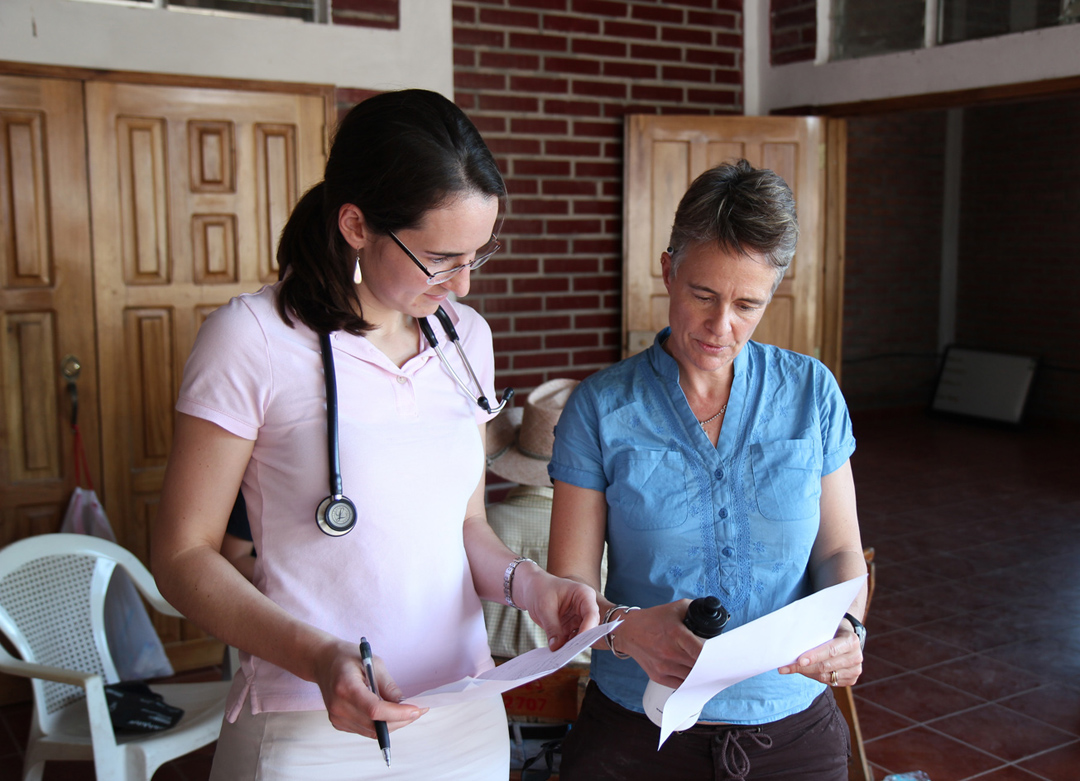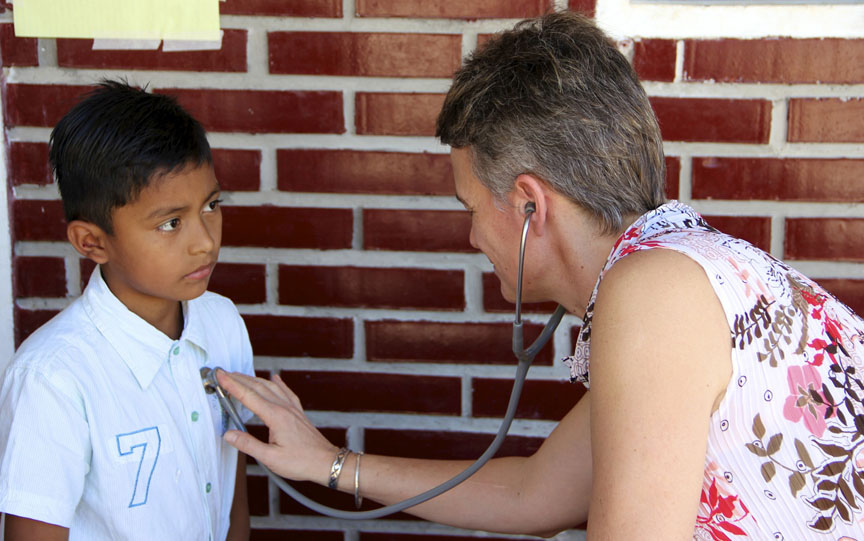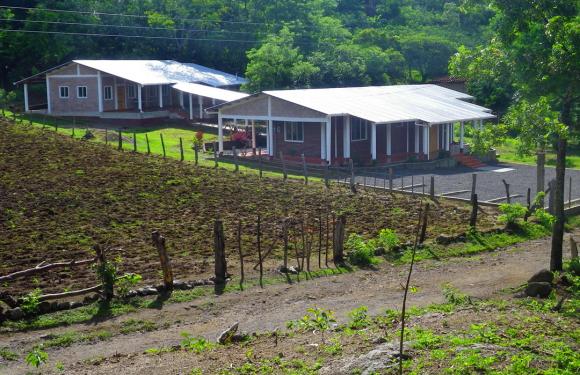Global health work is a tradition in Emily Harrison’s family, dating to her grandfather’s and father’s days providing care in the Middle East. Five years ago Harrison’s sense of mission brought her to Honduras, and ever since she’s been trying to do more than relieve medical suffering. She wants to treat poverty, too.
Since February, Harrison, clinical professor of family medicine in The Warren Alpert Medical School of Brown University, has also served as the executive director of Shoulder to Shoulder, a multiuniversity nongovernmental organization that operates two urban medical centers and 11 rural clinics in Honduras.
At the end of July, Harrison and a cadre of Brown colleagues and students returned to the 500-resident town of Gauchipilincito to open the newest clinic, a joint project of volunteers involving Brown and Wright State University. Hundreds of people from the town and countryside came for urgently needed care and to join in the uniquely Honduran festivities.
“It was a great celebration and a really happy day,” said Harrison. “The village schoolchildren sang the national anthem, one of the community leaders read a parable he had composed for the occasion, and there were lots of speeches. For the official ribbon cutting, we had ribbon that was the same blue and white as the Honduran flag.

After that the new clinic, which cost only $125,000 to build and equip, got down to business with a care team from Brown that included three family medicine doctors: Jeffrey Borkan, department chair; Gowry Anandarajah, clinical professor; and Margaret Tryforos, clinical assistant professor. Local children also saw Sandra Musial, clinical assistant professor of pediatrics.
The doctors saw ailments that were typical in a poor, rural area where access to health and wealth is as remote as the geography, Harrison said. They treated children with worms, patients with skin infections, and people with diarrhea. A respiratory infection that was sweeping the area had even stricken a few of the U.S. volunteers. In one case, the Shoulder to Shoulder team felt compelled to pool the money necessary to send a boy to Tegucigalpa, the capital, for surgery on a long-neglected groin hernia.
The clinic provides outpatient care, can protect about 4,000 people in the area from treatable infections, and can help them manage low-cost, long-term conditions, such as high cholesterol or depression.
The worst long-term condition in the area, however, is not fundamentally medical. It’s economic: malnutrition. That’s why the clinics also provide social services meant to not only sustain their communities, but also to boost their ability to sustain themselves.

The clinic also will offer scholarships and promote family planning strategies.
“This is really about poverty and poverty reduction,” Harrison said. “Hopefully there will be a slight shift to being a little more hopeful about the future.”
Standing shoulder to shoulder
Harrison first went to Honduras while a Brown family medicine fellow and student seeking a masters in public health (which she earned in 2006). She was also a physician at the Thundermist Health Center in Woonsocket.
Thundermist had a partnership with a Honduran community through Shoulder to Shoulder, and Harrison’s supervisors encouraged her to visit. The trip seemed like a good idea because of all the work she was doing in Rhode Island with local Latino women. She continues to see many Hispanic women in her practices at Women’s Care and at Memorial Hospital in Pawtucket.
At about the same time, Borkan asked whether she’d be willing to scope out a clinic in Honduras that the department was considering as a site to train its residents. “They were talking about the same trip,” she said. “It sounds trite, but I really just found my calling when I went down there for the first time.”
Drawing on a lifetime of exposure to global health relief work, she recognized Shoulder to Shoulder, founded in Cincinnati in 1990, as an organization worth working with, especially because she saw an opportunity to expand their services for women’s health.
Now as the executive director, she manages an enterprise that employs more than 100 people in Honduras serving tens of thousands of people. Although the organization relies heavily on donations, in many cases its clinics also hold government contracts to deliver primary care in their areas.
“It’s been really successful, so successful that the government acknowledges that this is the way to deliver care,” she said. “As a larger organization, that’s what makes us sustainable. It lets us do most of what we want to do.”
And that’s no secret. The group’s motto is “We exist to serve the poor.” Shoulder to Shoulder. Hombro a Hombro.

